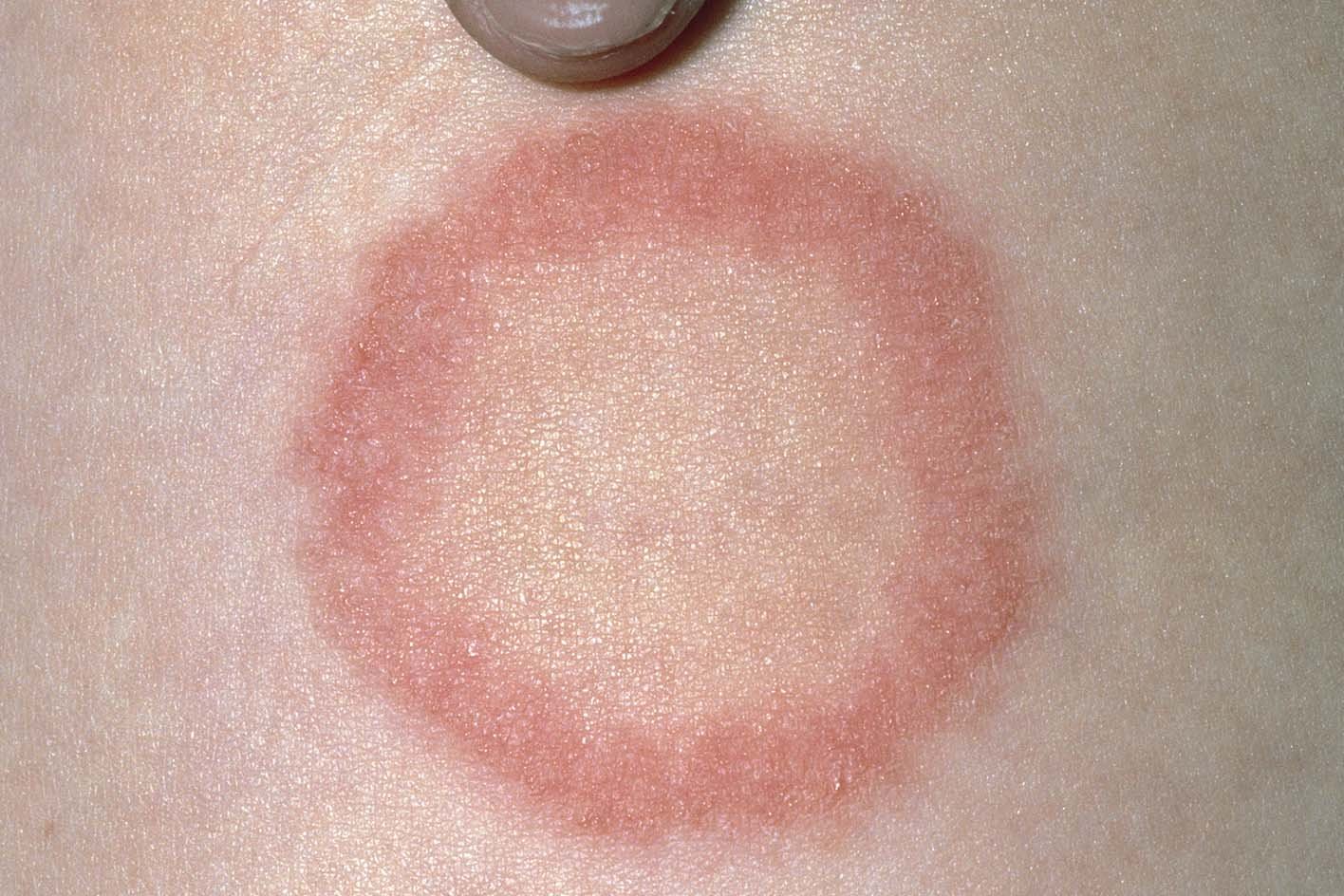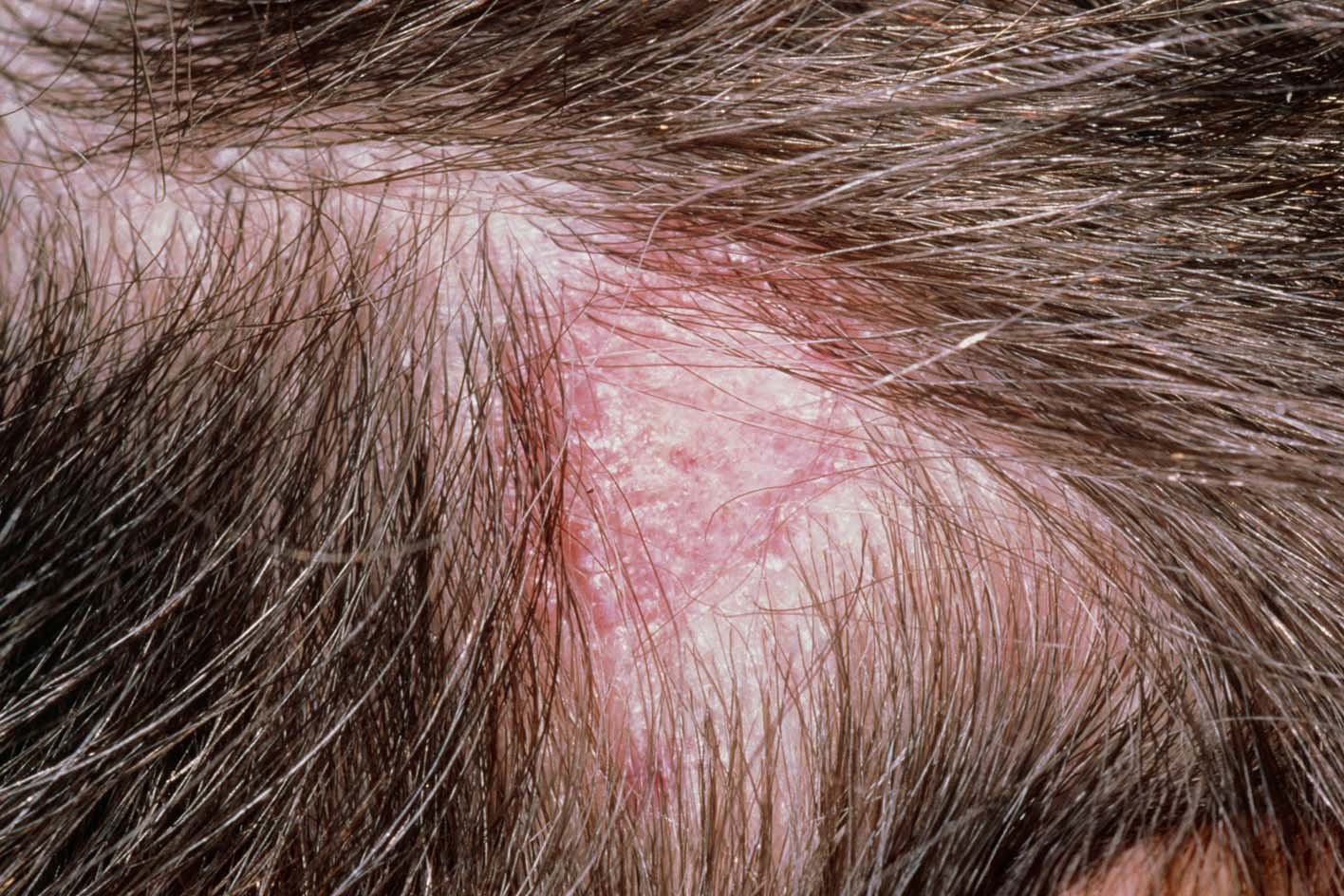Ringworm
Ringworm is a common fungal infection.
Despite its name, it is not caused by worms.
A pharmacy will usually stock the correct medication to treat it.
How do I know if it is Ringworm?
The main symptom of Ringworm is a rash.
This rash will usually appear red, silver or darker than the surrouding skin area (This can depend on your skin tone)
The rash may also be dry, swollen, scally and/or itchy.
The rash may be less noticeable on darker toned skin.
Ringworm can appear anywhere on the body, this can include;
- The Scalp (Known as Tinea Capitis)
- Groin (Jock itch)

A pharmacist can help with Ringworm
Speak to a pharmacist first
They can inspect the rash to advise and recommend the best form of antifungal treament for you.
This treatment may be a cream, spray or gel. This will be dependant on where the rash is located.
You may need to use an antifungal medicine every day for up to 4 weeks.
It is important to use the treatment for the correct amount of time, even after the rash has gone away.
A pharmacist will advise you if they think that you need to speak with a GP
When should I see/speak to a GP?
- If the Ringworm has not improved/disappeared after using the antifungal medicine that was recommended by a pharmacist
- You have ringworm on your scalp. You will usually need a prescription for an antifungal shampoo and tablets.
- You have a weakened immune system (E.g. from Chemotherapy, Steroids or diabetes)
 - Ringworm on the face or scalp may also cause patchy hair loss (ensure that you speak with a GP if this is where the Ringworm is located)
- Ringworm on the face or scalp may also cause patchy hair loss (ensure that you speak with a GP if this is where the Ringworm is located)
How have I caught it?
Ringworm is caused by a type of fungi.
It can be caught or passed on through close contact with;
- An infected person or animal
- Infected objects (Bedsheets, combs or towels)
- Infected soil (This is less common)
It is fine for you or your child to go to work/school once they have started treatment. It is advisable to let your child's teacher know they have ringworm, to reduce the chance of spreading.
Can I stop Ringworm spreading?
Do
- Start treatment as soon as possible
- Wash towels and bedsheets regularly
- Keep your skin clean and wash your hands after touching animals or soil
- regularly check your skin if you have been in contact with an infected person or animal
- take your pet to the vet if they might have ringworm (For example, patches of missing fur)
Don't
- Share towels, combs or bedsheets with someone who has Ringworm
- Scratch a Ringworm rash (This could spread it to other parts of your body)
We use cookies to help provide you with the best possible online experience.
By using this site, you agree that we may store and access cookies on your device. Cookie policy.
Cookie settings.
Functional Cookies
Functional Cookies are enabled by default at all times so that we can save your preferences for cookie settings and ensure site works and delivers best experience.
3rd Party Cookies
This website uses Google Analytics to collect anonymous information such as the number of visitors to the site, and the most popular pages.
Keeping this cookie enabled helps us to improve our website.

